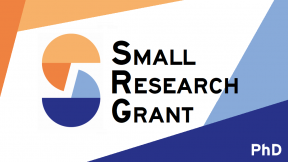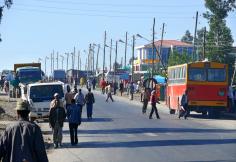In response to rapid urban growth, recent decades have been marked by substantial investment in residential housing across the developing world. This investment has been driven in part by a growing share of urban populations with informal and insecure residential arrangements (Marx et al., 2013). The scale of these policies leads to fundamental changes in city structure as people are reallocated across the city. The spatial distribution of people across the city has implications for employment and inequality (Tsivanidis 2021, Balboni et al. 2021). We study a large expansion of public housing in Ethiopia to address two fundamental research questions. Firstly, what are the spatial spillovers from large condominium developments? Secondly, does access to new condominiums push households into the formal sector?
Beginning in 2005, the Ethiopian government has built nearly 200,000 public housing units in Addis Ababa; this represents the largest investment in public housing in Sub-Saharan Africa. Our project combines administrative and household survey data to answer our primary research questions. Through our partnership with the Policy Studies Institute in Ethiopia and the Addis Ababa Housing Development Authority, we sample households who applied for a condominium unit, drawn from a sampling frame of the universe of condominium applicants. We match these surveys with public and private sector social security records and firm listings from the Ministry of Trade. Identification of policy impacts on formal sector employment comes from random allocation of public housing via lottery. Neighborhood-level impacts are estimated following Gechter and Tsivanidis (2021); administrative unit exposure measures are calculated as a distance weighted average of condominium density.
The policy relevance of our study is clear: by studying in-direct outcomes and spillovers we aim to better understand a policy that has been a significant and widely touted focus for the Ethiopian government. Our team has an ongoing relationship with the AAHDAA who oversee the implementation of the condominium policy. We expect our results to be particularly relevant for their operations. Since the policy is ongoing, there is scope for policy changes and targeting based on our results. Furthermore, demands for improved, low-cost housing are prevalent in nearly every growing city in Sub-Saharan Africa. Consequently, similar public investments in housing are being planned or implemented across the continent and we expect our findings to be relevant in these contexts as well. Finally, we hope to use our reduced form estimates to inform an urban spatial equilibrium model (Tsivanidis 2020; Balboni et al. 2021) through which we can estimate welfare impacts, and conduct counterfactual exercises.
Preliminary results imply that the policy effectively increases formal sector employment: winning household heads are 11% more likely to be formally employed. These individuals are drawn from casual employment; there are no changes in unemployment rates. We are in the process of estimating spatial spillovers on wages, but preliminary results suggest small, positive impacts on neighborhood-level earnings as a function of condominium exposure, driven by increased employment rates.
























































